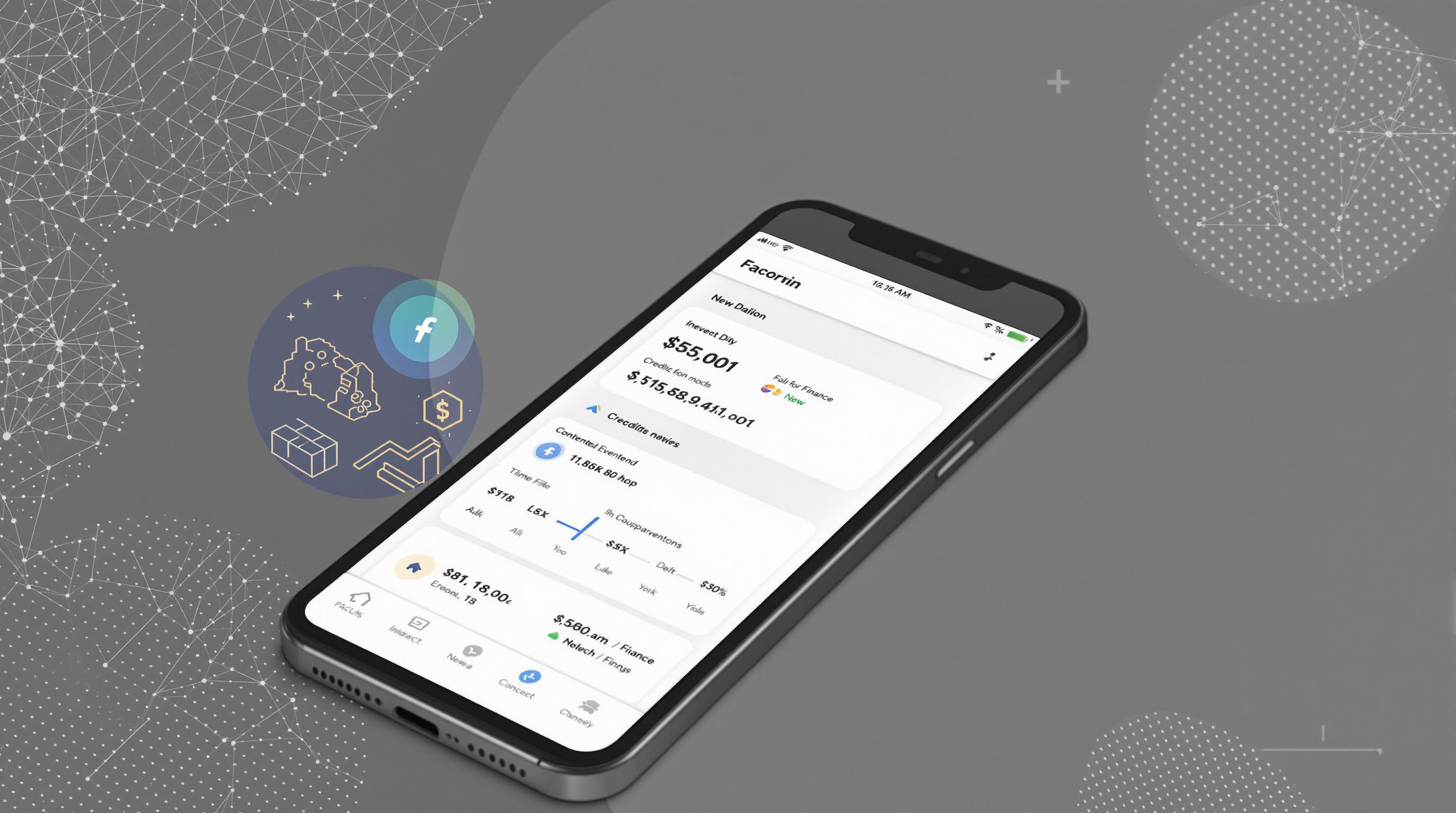Related Articles
- Top 5 Eco-Friendly Wallets Released Since 2019 That Blend Style with Smart Money Management
- Unlocking the Psychology of Spending: How Emotional Triggers Sabotage Your Saving Habits Without You Noticing
- Top 6 Revolutionary Micro-Investment Tools Launched Since 2019 Transforming Family Emergency Cash Reserves
- Top 6 New Credit Builder Cards and Apps From the Past Five Years That Actually Speed Up Your Score Growth
- Top 6 Innovative Debt Restructuring Tools from 2019 to 2024 That Outsmart Traditional Refinancing Options
- How Identity Protection Plans Intersect with Cyberpsychology to Influence Consumer Behavior and Risk Perception
Top 7 Next-Gen Financial Tools Launched Since 2019 That Are Revolutionizing Credit Growth Reviewed
Top 7 Next-Gen Financial Tools Launched Since 2019 That Are Revolutionizing Credit Growth Reviewed
Top 7 Next-Gen Financial Tools Launched Since 2019 That Are Revolutionizing Credit Growth Reviewed
Introduction to Next-Gen Financial Tools
The financial industry has seen a remarkable transformation over the past few years, largely driven by the emergence of next-generation financial tools. Since 2019, several innovative platforms have been launched, all aimed at revolutionizing credit growth by making credit access easier, smarter, and more efficient. These tools harness big data, artificial intelligence, and seamless user experiences to redefine how individuals and businesses build and manage credit.
Traditional credit systems have often been criticized for their slow processes, limited accessibility, and reliance on outdated scoring models. Next-gen tools address these gaps by incorporating alternative data sources, real-time analytics, and personalized credit solutions, thus fostering financial inclusion and better credit growth for underserved populations.
In this article, we review seven pioneering financial tools launched since 2019 that are spearheading this credit revolution. Each tool is examined for its unique features, impact on credit ecosystems, and how it is helping users unlock new credit opportunities.
1. Upstart: AI-Powered Lending for Enhanced Credit Access
Upstart is a lending platform that leverages artificial intelligence to evaluate creditworthiness beyond traditional FICO scores. Launched earlier but significantly evolving post-2019, Upstart uses alternative data such as education, job history, and income to provide borrowers with fairer loan terms and to expand credit access. This approach has resulted in fewer defaults while delivering better rates to qualified borrowers.
The AI-driven underwriting process helps financial institutions approve more loans without increasing risk, supporting credit growth at scale. Upstart’s ability to personalize credit offerings based on broad data insights represents a shift towards a more inclusive and predictive credit model.
Since its IPO in late 2020, Upstart has reported significant growth, with its algorithms improving continuously. According to Upstart’s 2023 investor presentation, the platform has enabled over $20 billion in loans, highlighting its role in democratizing credit (source: Upstart Investor Relations).
2. Petal: Credit Cards Built for Financial Inclusion
Petal launched its innovative credit card product designed specifically to address the needs of consumers without extensive credit history. This tool uses cash flow data rather than traditional credit scores for underwriting, allowing more people—including young adults and newcomers to credit markets—to establish and grow credit responsibly.
By accessing bank transactional data through secure APIs, Petal assesses applicants' ability to manage credit payments in real time, resulting in more precise credit limits and terms. The card also comes with financial education resources that promote smart credit behaviors.
Petal’s work has gained praise for enhancing credit opportunities for underserved groups, effectively challenging the static, score-based lending paradigm. The company's approach is cited by Finextra as a key development in alternative credit scoring (source: Finextra, 2022).
3. Credit Karma: Expanding Consumer Credit Insights
Credit Karma has evolved from a free credit monitoring service to a comprehensive financial platform offering personal loans, credit cards, and tailored financial recommendations since 2019. Its technological advancements include leveraging machine learning to provide consumers with actionable insights for credit growth.
The platform offers a user-friendly dashboard that tracks credit score changes, identifies error-prone areas on credit reports, and recommends debt payoff strategies. This empowers users to improve their credit over time in a disciplined manner.
Credit Karma’s acquisition by Intuit in 2020 has accelerated its product innovations, merging tax and credit solutions to optimize consumer financial health. The company reports over 110 million users, evidencing its wide influence on credit behavior (source: Credit Karma press release, 2023).
4. Tala: Microcredit via Mobile for Emerging Markets
Tala has introduced a mobile lending platform targeting underserved consumers in emerging markets such as Africa and Asia. Since 2019, Tala uses smartphone data, including app usage and location, to perform rapid credit assessments, allowing borrowers to receive instant microloans.
This tool addresses the lack of formal credit data in these regions, opening doors for individuals excluded from conventional banking systems. Tala’s seamless repayment methods and educational notifications support responsible credit growth.
With partnerships involving major mobile operators and financial institutions, Tala reports disbursing over $1 billion in loans globally, highlighting its contribution to financial inclusion and credit expansion (source: Tala Annual Report, 2023).
5. Deserve: Innovative Credit Cards for Underrepresented Clients
Deserve focuses on delivering innovative credit card products to students, freelancers, and immigrants, groups often underserved by traditional lenders. Introduced in its latest iteration since 2019, the platform leverages machine learning models and alternative data sources to evaluate applicants fairly.
Its flagship card offers no fees, cashback rewards, and flexible credit limits based on digital footprint analysis. By bypassing conventional credit histories, Deserve accelerates credit access while maintaining risk controls.
Deserve’s solutions have been integrated with fintech giants, expanding reach and enhancing user experiences. The company’s model is recognized for fostering credit growth through technology-driven, inclusive underwriting (source: Forbes Fintech, 2021).
6. FinBox: Enterprise-Grade Credit Scoring APIs
FinBox provides API solutions that enable banks and fintech companies to incorporate sophisticated credit scoring models without building their own. Since 2019, FinBox’s platforms have offered AI-powered analytics that utilize alternative data like telecom payments and utility bills.
This service empowers lenders to extend credit to previously unbanked or underbanked populations by delivering holistic credit risk profiles, thereby facilitating more credit originations where they were scarce before.
FinBox’s technology is widely adopted in South Asia and other emerging markets, enhancing credit growth at the institutional level through smarter, scalable credit assessment (source: FinBox Corporate Website, 2024).
7. Upgrade: Blending Credit and Education to Improve Financial Health
Upgrade offers personal loan products coupled with financial education tools, launched with significant enhancements post-2019. The platform integrates credit monitoring with actionable advice to help users build credit sustainably.
Upgrade’s unique selling proposition is personalized financial coaching alongside transparent lending terms, facilitating better credit decisions and healthier borrowing habits. This helps users not only obtain credit but also understand how to grow it responsibly.
With over $6 billion lent since inception, Upgrade is recognized for marrying technology with education to enhance credit outcomes, a method validated by lending industry studies highlighting behavior-driven credit expansion (source: Upgrade Impact Report, 2023).
How These Tools are Shaping the Future of Credit Growth
Collectively, these next-gen financial tools are transforming credit growth by making credit access smarter, fairer, and more inclusive. By leveraging artificial intelligence, alternative data, and mobile technology, they are reducing reliance on traditional, often exclusionary, credit scoring models.
Their innovations are driving financial inclusion by enabling underserved demographics—such as young adults, immigrants, freelancers, and consumers in emerging markets—to establish and expand their credit. This shift not only empowers individual borrowers but also stimulates broader economic growth through increased lending activity.
Additionally, the integration of educational components ensures that credit growth is accompanied by improved financial literacy. This holistic approach addresses the root causes of poor credit and promotes sustainable borrowing behaviors, ultimately reducing default rates and fostering long-term financial health.
Conclusion
Since 2019, advancements in fintech have birthed a new generation of financial tools that are revolutionizing credit growth globally. Platforms like Upstart, Petal, and Tala demonstrate that innovative technologies can dismantle traditional barriers and create more equitable credit ecosystems.
The continued evolution of AI, big data, and user-centric designs promises even more profound changes in the years ahead. As credit systems become more adaptive and inclusive, the potential for economic empowerment across diverse populations will only grow stronger.
For individuals and institutions alike, embracing these tools means not only unlocking new credit opportunities but also participating in a financial future defined by fairness, transparency, and enhanced accessibility.




